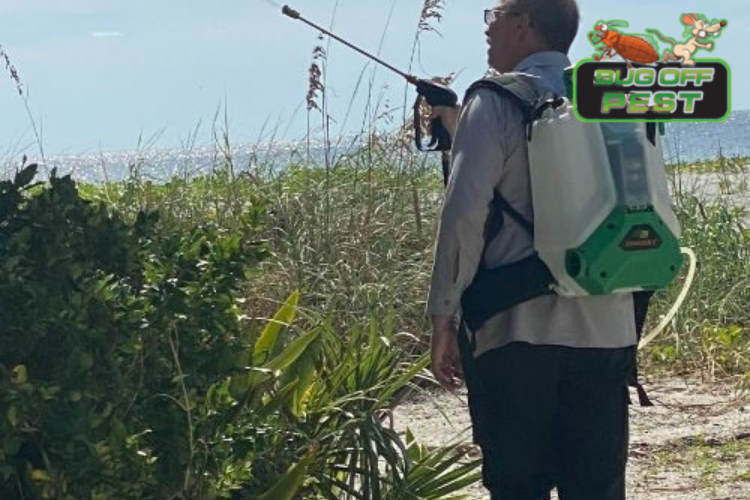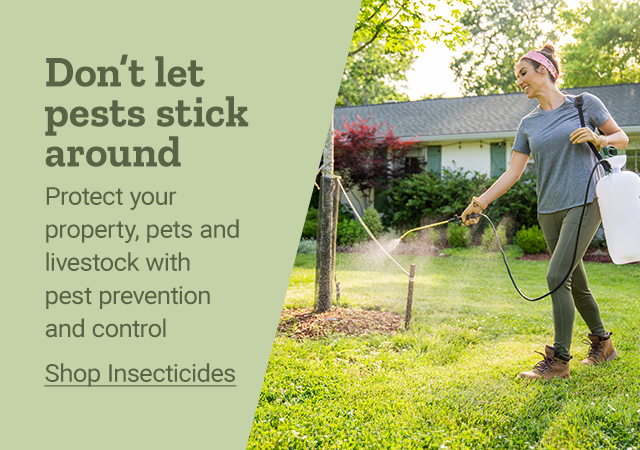Wildlife Removal Services in Port Charlotte for Efficient and Professional Solutions
Wiki Article
Find Out About the most up to date Developments in Pest Control and Just How to Execute Efficient Treatment Solutions
In current years, the area of bug control has observed considerable developments, driven by the requirement for efficient and sustainable therapy options. Ingenious techniques such as Integrated Bug Monitoring (IPM) combine environmentally friendly techniques with cutting-edge innovation, boosting both efficiency and ecological obligation.Eco-Friendly Pest Control Options
In recent times, the need for environment-friendly pest control choices has actually risen as house owners and companies alike look for lasting options to typical chemical therapies. This change is driven by expanding ecological awareness and a wish to reduce the health threats connected with artificial chemicals.

Eco-friendly bug control techniques include a series of methods that focus on the use of all-natural compounds and methods. Integrated Parasite Management (IPM) is one such strategy, combining organic, cultural, and mechanical techniques to manage insect populaces while minimizing dependence on chemicals (Wildlife removal services). This holistic approach emphasizes prevention with environment adjustment and the introduction of natural killers, consequently promoting a balanced ecosystem
One more preferred alternative is using botanical chemicals originated from plants, which tend to be less dangerous to non-target microorganisms. Products like neem oil and diatomaceous earth have gained traction for their effectiveness in controlling pests while presenting minimal dangers to human health and the setting.
Furthermore, exemption strategies, such as securing entrance factors and preserving cleanliness, play a crucial role in green bug administration. By taking on these lasting techniques, businesses and individuals can properly manage parasites while promoting a healthier planet for future generations.
Smart Modern Technology in Pest Management
Innovation is reshaping the landscape of bug monitoring, with smart innovation arising as a crucial force in boosting efficiency and performance - Wildlife removal services. The assimilation of Web of Points (IoT) devices, fabricated knowledge (AI), and data analytics is transforming just how insect control professionals approach infestations
Smart catches geared up with sensing units can detect parasite activity in real-time, sending out immediate notifies to operators. This enables prompt responses, minimizing damage and lowering the need for substantial therapies. Additionally, AI formulas evaluate historical data to forecast parasite behavior, making it possible for aggressive treatments based upon environmental conditions and problem patterns.
Drones and computerized automobiles are also playing a significant function in pest management, providing aerial assessments of large areas, identifying hotspots, and even dispersing targeted therapies. These modern technologies not just improve procedures but likewise enhance safety by limiting human exposure to potentially harmful chemicals.
In addition, mobile applications empower customers to check parasite task and access specialist recommendations, promoting a collaborative approach to pest monitoring. On the whole, the adoption of clever modern technology is establishing a brand-new criterion in insect control, emphasizing data-driven choices and sustainable practices that ultimately benefit both homeowners and specialists alike.
Integrated Parasite Administration Methods
Integrated Insect Administration (IPM) employs an all natural technique to pest control, combining different approaches to efficiently take care of bug populaces while lessening threats to human health and wellness and the environment. IPM focuses on understanding the pest life process, their natural adversaries, and the ecosystem in which they grow.One of the basic parts of IPM is keeping track of pest populaces through regular inspections and information collection. This enables the recognition of insect limits, establishing when intervention is essential. Cultural techniques, such as crop hygiene, habitat, and rotation control, are necessary in lowering insect occurrence and advertising plant health.
Mechanical controls, consisting of traps and barriers, are additionally important in IPM. These techniques can literally remove or discourage bugs without using chemicals. When required, the sensible application of chemical controls is used, focusing on targeted treatments that lessen ecological effect.
Education and collaboration among stakeholders, including farmers, parasite control specialists, and the community, are vital for the effective execution of IPM strategies. By Pest control services prioritizing sustainable techniques, IPM not only addresses pest issues but also fosters a healthier community.
Biological Control Methods
Various biological control methods are increasingly recognized for their effectiveness in managing insect populaces while advertising eco-friendly balance. These techniques harness all-natural predators, parasites, and virus to decrease pest numbers without depending on synthetic chemicals. The introduction of ladybugs can properly regulate aphid populaces, while nematodes target soil-dwelling bug larvae.In addition, the usage of microbial pesticides, such as Bacillus thuringiensis (Bt), provides an environmentally friendly alternative for handling caterpillar parasites. These items particularly target pest types, minimizing harm to useful insects and pollinators. Conservation organic control emphasizes boosting habitats for all-natural adversaries, such as birds and advantageous pests, consequently encouraging their visibility in agricultural systems.
Research proceeds to reveal ingenious methods within this area, such as making use of pheromones to interfere with pest mating patterns or the growth of biocontrol agents via genetic modification. Executing these methods can cause sustainable insect management methods that mitigate the reliance on chemical treatments, eventually cultivating healthier communities. As understanding of these strategies expands, they are becoming important parts of integrated insect monitoring (IPM) strategies, offering a balance between effective bug control and ecological stewardship.
DIY Insect Control Solutions
As property owners seek efficient means to tackle pest problems, do it yourself pest control options have actually gained popularity for their availability and cost-effectiveness. These approaches encourage people to deal with problems utilizing conveniently offered products and strategies, frequently without the need for expert intervention.
Additionally, preserving correct cleanliness and routine inspections can avoid parasite entry and nesting (Wildlife removal services). Easy methods, such as securing fractures, getting rid of food sources, and decluttering, can substantially diminish insect populaces. Catches, both homemade and commercially offered, can additionally provide effective services for surveillance and controlling details insects like rodents or insects

Verdict
The integration of environment-friendly pest control options, smart innovation, and ingenious management strategies presents an extensive technique to effective bug monitoring. By accepting Integrated Parasite Administration (IPM) and utilizing organic control methods, together with do it yourself remedies, accountable and sustainable pest control can be accomplished. These developments not just improve the effectiveness of bug management practices yet likewise contribute to a much healthier environment. Implementing these strategies fosters a balanced ecosystem while effectively resolving pest populaces.Green bug control methods incorporate a variety of strategies that focus on the use of all-natural materials and techniques. Integrated Insect Management (IPM) is one such technique, combining biological, social, and mechanical tactics to take care of insect populaces while decreasing dependence on chemicals. As awareness of these methods expands, they are ending up being indispensable elements of incorporated pest administration (IPM) strategies, using a balance between reliable insect control and environmental stewardship.
The combination of environmentally friendly parasite control options, wise modern technology, and innovative management strategies provides an extensive technique to reliable pest management. By accepting Integrated Parasite Management (IPM) and utilizing organic control approaches, alongside DIY options, responsible and lasting parasite control can be accomplished.
Report this wiki page